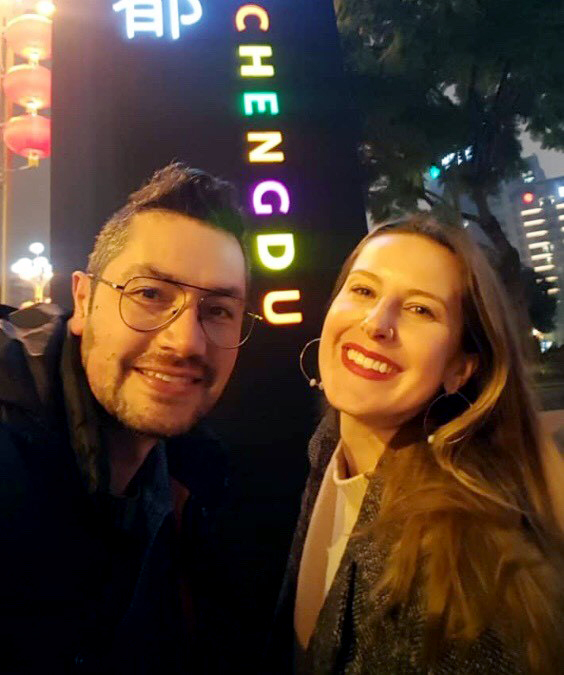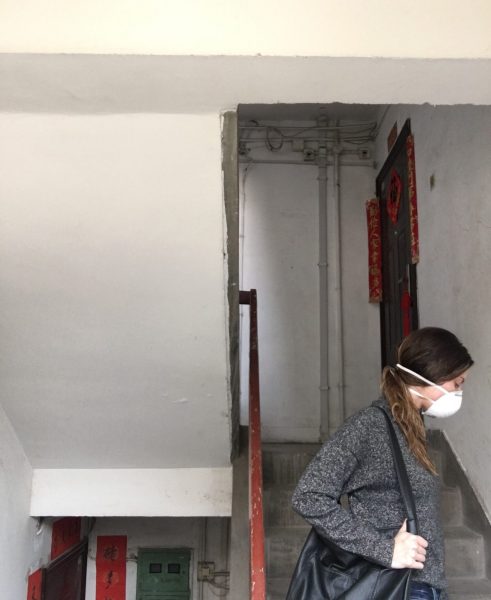
Kristen Mullen develops digital learning tools for budding writers
In 2015, following her first year in Colorado State University’s Master of English literature program, Kristen Mullen (M.A. ‘16) got a passport and headed to Xi’an, China with a few fellow English students.
They were there for a summer teaching program at Xi’an Jiaotong University.
“The night before we left (China) one of my students left a copy of a Chinese sci-fi novel under my door with his name in the back,” Mullen said. “I turned ‘The Three-Body Problem’ over in my hands during the 17-hour plane ride back to Denver.”
But she couldn’t read Chinese characters and was baffled by why the student felt she should have it.
“So I made a promise to look into it at home,” she said. “By the time I settled back into my next semester at CSU, the translation of ‘The Three-Body Problem’ had become a cultural phenomenon, with Barack Obama and Mark Zuckerburg hailing it as the best science fiction novel of the year.”
The novel, about a persecuted scientist who sparks confrontation between Earth and an alien civilization, went on to win several prestigious awards. They include the Hugo Award for Best Novel and the Galaxy Award in China.
“It blasted Chinese sci-fi into the realm of World Literature,” Mullen said. “I promptly changed my thesis to translation in science fiction literature and began a new adventure.”
The change set her along a path that led her back to Xi’an Jiaotong University, located in the Shaanxi province of China, about 11 hours northwest of Hubei Province, which encompasses Wuhan. Now, as the novel coronavirus and its disease, COVID-19, sweep across the globe, Mullen teaches world literature and oral English at the site of her 2015 summer teaching program.
“My husband and I decided to stay while the outbreak rages in Hubei, helping our department organize and develop online classes for the remainder of semester,” she said. “I have also continued my research on translated literature on well-known sci-fi writer Xia Jia, who is a fellow professor here at XJTU.”

During China’s quarantine period, Mullen has developed resources that aim to overcome social distance by maintaining interaction and visibility online.
“Living in quarantine has been a challenge for me, my students, and the people of China,” she said.
To help bridge the gap in human connection, Mullen created an online creative writing workshop called Jiaoda Roundtable Adventures. She gathers with her students digitally in the app QQ, where the writers share ideas and written creations.
During her time at CSU, Mullen also interned in the English department’s Community Literacy Center with its Speakout! program that brings creative writing to incarcerated people.
“My colleagues and I went to the Larimer County Women’s Jail to write and share our thoughts each week with female prisoners,” she said. “The experience forever changed my views on incarceration and creative writing.”
Her Jiaoda Writing Adventures program takes its cue from Speakout!, Mullen said, and she hopes to work collaboratively with the program in the future. Her goal is to provide opportunities for writers in different types of isolation to share their work overseas, in a safe and open digital space.

“The COVID 2019 has been a scary two months for many and has brought out racism toward Asians overseas — the ugly side of fear and confusion,” Mullen said. “But this experience has shown me the solidarity and kindness of my university and neighbors here in Xi’an, and it’s given me such a lasting appreciation for my alma mater, which continues to drive my life path in directions I could have never dreamed of before arriving to Fort Collins.
“CSU is helping my little community of writers feel heard in a time where many Chinese students feel misunderstood.”
Mullen now believes she understands why her student left the novel under her door nearly five years ago.
“I think it was a last ditch effort to send back a refined example of ingenuity,” she said, “and a unique look at the future that China has to offer the world, in hopes that people in America would consider the same possibilities.”